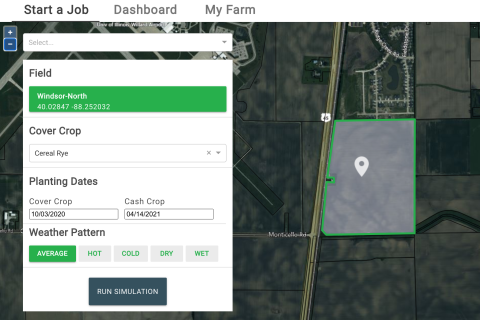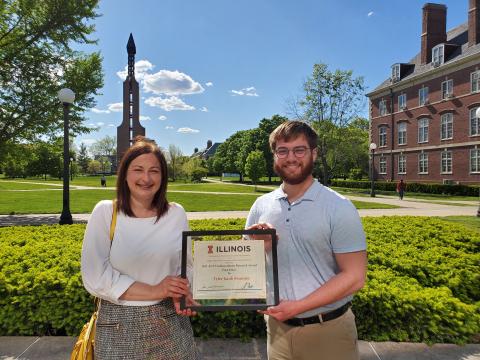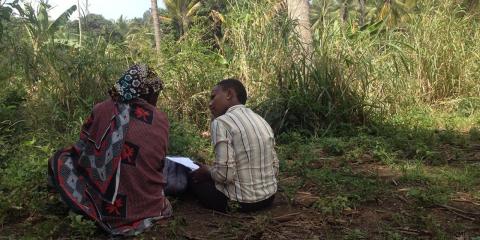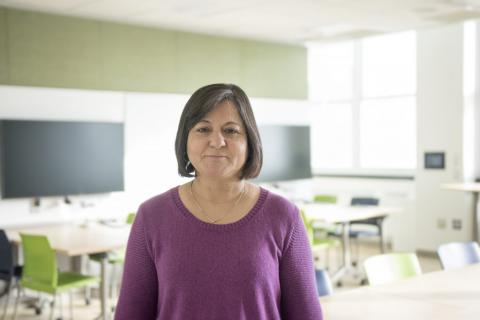Madhu Khanna is serving on a committee appointed by the National Academy of Science. The ad hoc committee will assess current methods for estimating lifecycle greenhouse gas (GHG) emissions associated with transportation fuels (liquid and non-liquid) for potential use in a national low-carbon fuels program. More details
Cover crop questions? There's an app for that

Original article from AgriNews, written by Tom Doran.
CHAMPAIGN, Ill. — Further updates have been made to a first-of-its-kind web tool to help Illinois farmers manage cover crops.
The free Cover Crop Decision Support Tool was developed by the University of Illinois’ National Center for Supercomputing Applications, with a collaborative team that included agronomists, climatologists and biological engineers.
The goal of the Cover Crop Decision Support Tool — covercrop.ncsa.illinois.edu — is to help provide site-specific answers to decisions not only surrounding the adoption, but also real-time management of cover crops.
Funding for the program is provided by the Illinois Nutrient Research and Education Council and the Walton Family Foundation. Initial seed funding also was provided by the McKnight Foundation and U of I.
Consumers Choose Renewable Energy

In spring 2021, undergraduate student Tyler Swanson and his advisor Renata Endres (both in the Agricultural and Consumer Economics department) produced an award-winning* research paper studying the interactions of Utility Green Pricing Programs (UGPPs) with renewable energy (RE) generation outcomes entitled “Observations on the Success of Utility Green Pricing Programs in Influencing Renewable Energy Generation".
UGPPs offer customers the option to source their energy from renewable sources by paying a small fee to their utility company. The utility company is able to either utilize their renewable energy sources or purchase it from an RE generator elsewhere.
Recently proposed energy policies in the United States call for the nation to transition to a fully renewable energy grid. States can opt to implement RE policy through Renewable Portfolio Standards (RPS), which mandate RE use by energy companies and thereby individuals. However, research shows that this policy model is not enough on its own, and complementary programs like Utility Green Pricing Programs (UGPPs) incentivize RE development.
Tanzania field trial finds soil testing and subsidies can increase fertilizer use and maize yields

View the original article by ACES Research here.
URBANA, Ill. – The right mineral fertilizers applied appropriately can alleviate nutrient deficiencies in soils and increase crop yields, but most small-scale farmers in Sub-Saharan Africa do not have their soils tested to reveal these deficiencies.
A Tanzania field study shows targeted fertilizer recommendations from low-cost, on-site soil tests paired with subsidies to purchase the recommended fertilizer can increase maize yields on small-scale farms. The soil tests also showed that a change in basic fertilizer recommendations from the government of Tanzania could address an important soil deficiency in Morogoro, where the study took place.
“The result stands out among similar studies because of the magnitude of the yield change – nearly 30% - and its statistical significance,” says Hope Michelson, associate professor of agricultural and consumer economics at the University of Illinois and a principal investigator on the research.
Discrimination continues to affect housing access and outcomes for renters of color in major US cities

Authors: Peter Christensen, Ignacio Sarmiento-Barbieri & Christopher Timmins recently published by the National Bureau of Economic Research.
